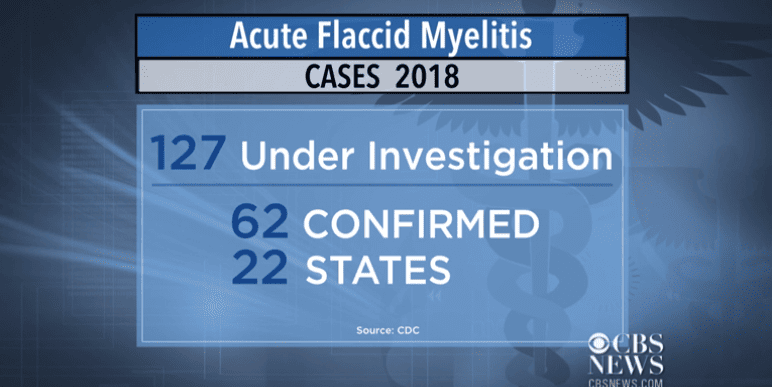
Read recent news of interest from the world of infectious diseases:
- Scientists studied flu cases in more than 600 cities and towns around the US—and found where flu season lasts the longest:
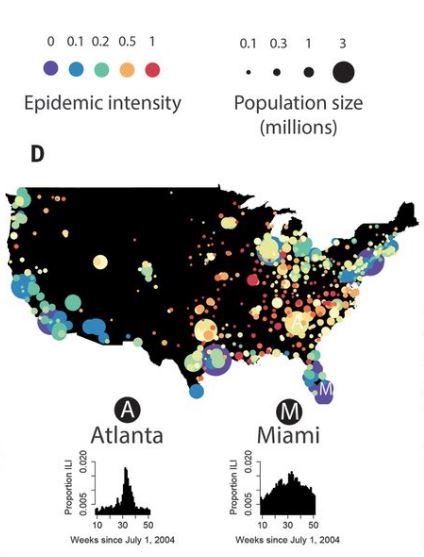 According to new research published in Science, in more densely populated cities, influenza (flu) season is typically longer and more persistent than it is in small towns. Researchers looked at week-by-week flu illness data in 603 cities and towns around the US from 2002-2008 and found that flu season lasts longer in more tightly packed cities like New York and Miami, than in a city like Atlanta, where homes and businesses are more spread out. Humidity plays an important role in flu transmission, and flu spreads fastest when it is cold and dry.
According to new research published in Science, in more densely populated cities, influenza (flu) season is typically longer and more persistent than it is in small towns. Researchers looked at week-by-week flu illness data in 603 cities and towns around the US from 2002-2008 and found that flu season lasts longer in more tightly packed cities like New York and Miami, than in a city like Atlanta, where homes and businesses are more spread out. Humidity plays an important role in flu transmission, and flu spreads fastest when it is cold and dry. - Percentage of young US children who don’t receive any vaccines has quadrupled since 2001: A small but increasing number of US children are not getting some or all of their recommended vaccinations. According to new data from the Centers for Disease Control and Prevention (CDC), the percentage of children under two years old who haven’t received any vaccinations has quadrupled in the last 17 years. An estimated 100,000 children who are now younger than two aren’t vaccinated against 14 potentially serious illnesses. Overall, immunization rates remain high and haven’t changed much at the national level. The vast majority of parents across the country vaccinate their children and follow recommended schedules for this basic preventive practice.
- Health officials push for vaccinations amid measles outbreak in Brooklyn and Rockland County: At least six children in Brooklyn have been diagnosed with measles, along with 11 in Rockland County in neighborhoods with a large Orthodox Jewish population. Five of the children had not been vaccinated, four were too young to receive the vaccine, and one had only received the first of two shots of the MMR vaccine. The outbreak is being attributed to international travelers returning from Israel where the country is struggling with the highly-contagious disease.Measles is a highly contagious respiratory disease caused by a virus that is spread by direct contact with nasal or throat secretions of infected people. Infected individuals first develop a fever, then may have a cough, runny nose, and watery eyes, followed by appearance of a rash and are considered infectious from four days before to four days after the appearance of the rash. The single best way to prevent measles is to be vaccinated. Individuals should receive two doses of MMR vaccine to be fully protected.
- CDC confirms 62 cases of polio-like illness, mostly affecting kids: Cases of the rare
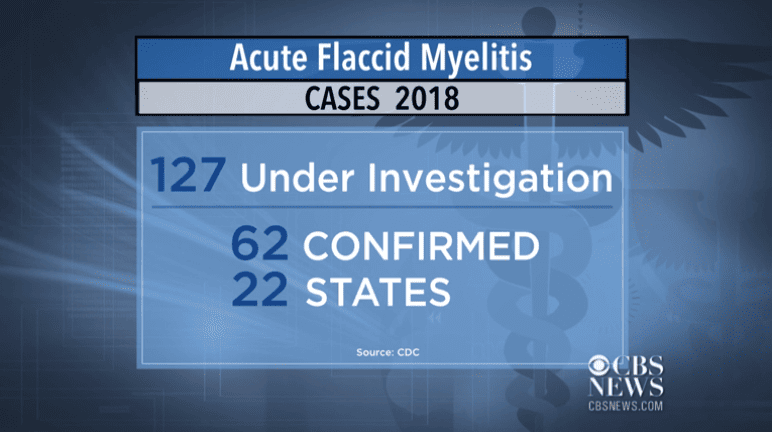 polio-like neurological condition acute flaccid myelitis (AFM) have been confirmed in 22 states and more than 90 percent of the cases involved children age 18 years or younger, with an average age of four years old. Parents should be aware of the symptoms and seek medical care if they notice sudden muscle weakness in their children. They can also help prevent AFM by taking steps to protect children from serious disease, including frequent hand washing, staying up to date on immunizations, and preventing mosquito bites.
polio-like neurological condition acute flaccid myelitis (AFM) have been confirmed in 22 states and more than 90 percent of the cases involved children age 18 years or younger, with an average age of four years old. Parents should be aware of the symptoms and seek medical care if they notice sudden muscle weakness in their children. They can also help prevent AFM by taking steps to protect children from serious disease, including frequent hand washing, staying up to date on immunizations, and preventing mosquito bites. - Last Year, The Flu Put Him In A Coma. This Year He’s Getting The Shot: Charlie Hinderliter got a bad case of the flu back in January. He spent 58 days in the hospital, underwent two surgeries, and was in a medically induced coma for a week. He was one of about 53 percent of individuals who didn’t get the flu shot last season. While flu vaccines don’t provide complete protection, flu vaccination reduces the risks of flu and serious related complications. During the 2017-2018 flu season, an estimated 900,000 individuals were hospitalized and nearly 80,000 deaths occurred in the US from flu and flu-related complications—the highest number of flu-related deaths in decades, according to estimates presented at the 2018 NFID Influenza/Pneumococcal News Conference in September.
To join the conversation and get the latest news on infectious diseases, follow NFID on Twitter, like us on Facebook, follow us on Instagram, join the NFID Linkedin Group, and subscribe to NFID Updates.
Related Posts
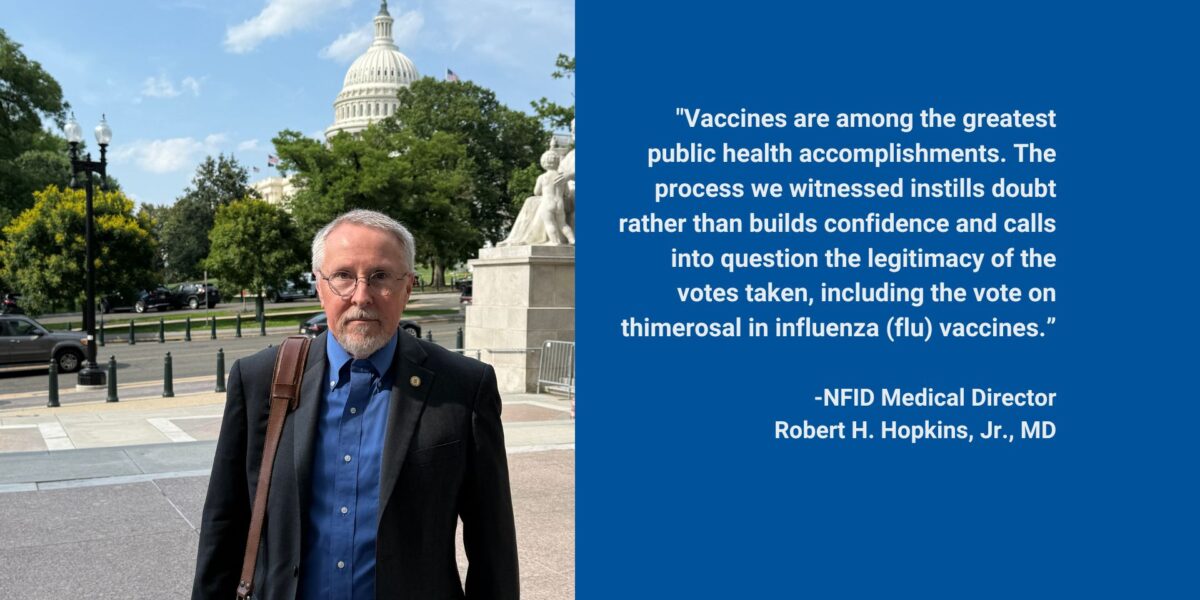
Flawed ACIP Process Leads to Confusion and Distrust
Public health experts and leading healthcare professionals share concerns regarding the June 2025 Advisory Committee on Immunization Practices (ACIP) meeting on US immunization policy …

Empowering Men to Prioritize Health
Staying up to date on all recommended vaccines and taking other steps to prevent illness helps ensure men are ready for what matters most—showing up for loved ones or simply enjoying life …
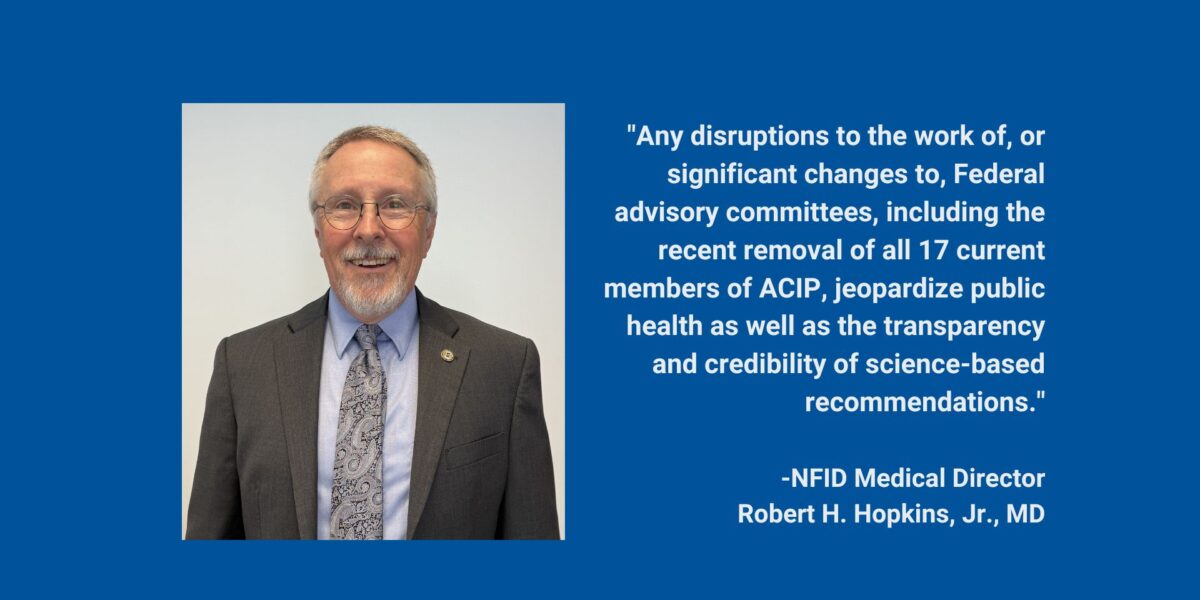
Experts Sound Alarm after ACIP Members Removed
Public health experts and leading healthcare professionals share concerns on the removal of all 17 members of the Advisory Committee on Immunization Practices (ACIP), which advises the Centers for Disease Control and Prevention (CDC) on the use of vaccines in the US
